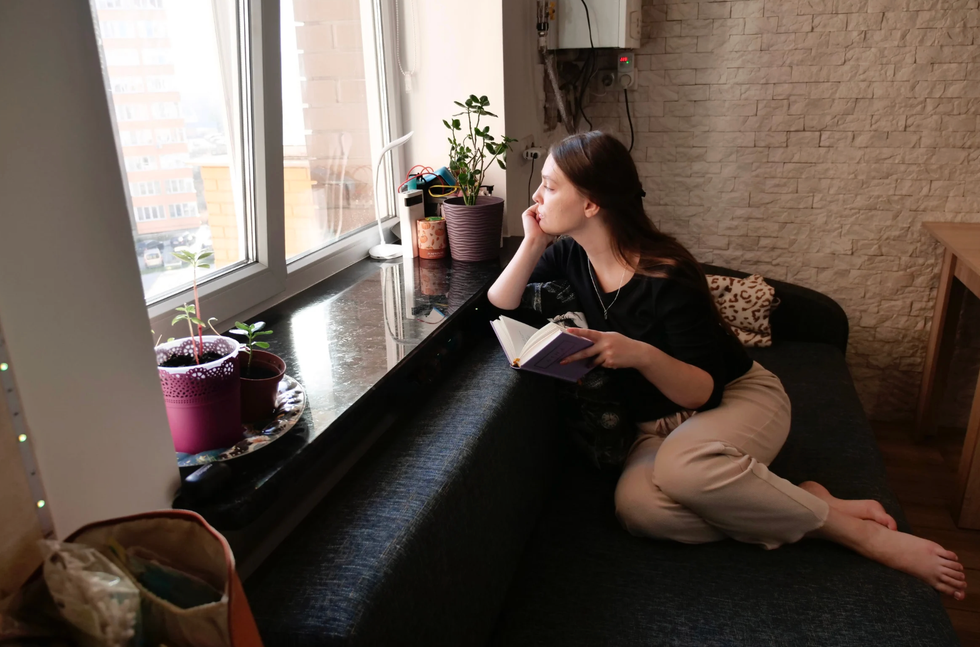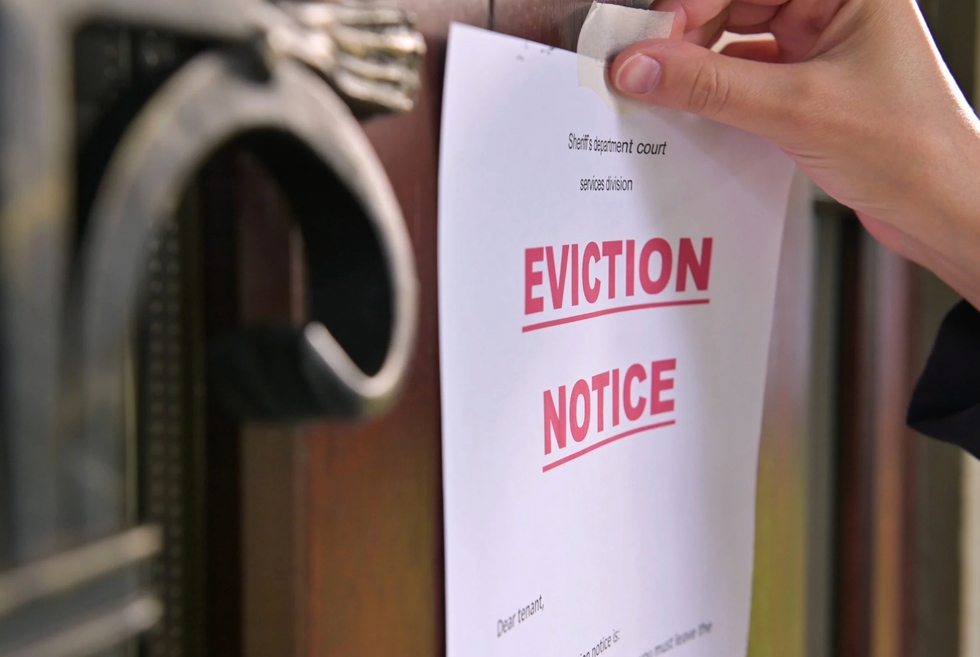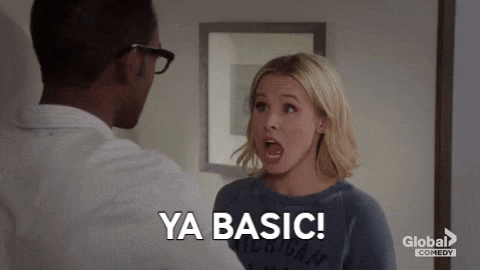In 1915, five years before women in the United States won the right to vote, American author Charlotte Perkins Gilman published Herland, a sui generis piece of steampunk speculative fiction about a fantasy feminist utopia. When I discovered the all-but-forgotten novel when it was reissued in 2014, I expected an unintentionally funny, naively futuristic throwback to a bygone time. Instead, I discovered a scorchingly relevant Victorian take on the narrative roots of patriarchal oppression, which became, unfortunately, even more relevant post-election.
The story begins with narrator Vandyck “Van” Jennings, a smug gentleman-adventurer who joins a far-flung expedition to bring “civilization” to “savages,” because it’s the late 19th century, and that’s what all the cool kids are doing. Van has tagged along with his old school friends, Terry O. Nicholson and Jeff Margrave, an investor/explorer and a doctor, respectively, who like him were brought up on thrilling tales of manifest destiny and cultural imperialism. When their native guides allude to a mythical land populated only by women, the trio break off from the group to go find it, each envisioning a world that reflects their individual idea of “womanhood” and their particular brand of sexism: hostile, benevolent, and ambivalent.
Terry, a misogynistic, narcissistic bully whom Van describes as “rich enough to do as he pleased,” expects a country of beautiful, acquiescent, sexually liberated young girls, free enough from societal constraints to have fun with, but not so free as to be equal. Jeff, a cartoonishly idealistic Southern gentleman doctor “born to be a poet or a botanist,” imagines a land full of gentle, doe-eyed angels with cherubic babies bouncing at their sides at all times. Van, meanwhile, sees himself as the most “scientific” of the three, arguing “learnedly about the physiological limitations of the sex.”
All three expect what they've begun referring to as “Herland” to be “uncivilized,” an untamed, Arcadian expression of women’s inborn nature—whether sexy girl, saintly mommy, or fascinating, if vaguely repulsive, biological “other” to be studied and classified. If there’s one thing the men can all agree on, it’s that there will be nothing rationally, functionally, technologically, morally, or politically superior about a society made up only of women and girls. “We seemed to think that if there were men we could fight them, and if there were only women,” Van describes in the book, “why they would be no obstacle at all.”
[quote position="right" is_quote="true"]The novel, as you might expect, begins as a mansplaining epic: an exegesis about an ancient race of women who have evolved over 2,000 years.[/quote]
The novel begins as a mansplaining epic: an exegesis about an ancient race of self-reproducing, parthenogenetic women, mothers all, who evolved over 2,000 years to produce one baby girl apiece, as authoritatively explicated by a guy who literally just met them. The first people Van, Terry, and Jeff encounter upon arriving in Herland are three lithe, flirtatious, teenage girls swinging from the trees. Ellador, Celis, and Alima are nothing like the girls back home; they are “erect serene, standing sure-footed and light as any pugilist.” The men follow them into town and soon find themselves surrounded by a cadre of older women—“old Colonels,” Terry calls them—who nonviolently block their path and escort them to their rooms. (“We found ourselves much in the position of the suffragette trying to get to the Parliament buildings through a triple cordon of London police,” Van says.)
The women lead them to comfortable dwellings; confiscate their razors; give them new androgynous clothing to wear; and feed them well. The humane imprisonment throws them. The place is so eminently civilized. How is this possible without men?
They come to learn Herland is a matriarchal society, free of hierarchies, gender ideologies, and rooted entirely in pragmatism. Everyone in Herland has short hair, gets a lot of exercise, believes in education, works for the good of the community, and wears comfortable tunics. It’s like a cross between a kibbutz, a New Urbanist conference, a Waldorf school, an Eileen Fisher ad, and the fully realized manifestation of every policy proposal Hillary Clinton has ever dreamed up. Motherhood shapes this society by united action. In Herland, it takes a village.
At first, the men aren’t sure if they’ll be “treated as guests,” per Jeff; “hailed as deliverers,” per Terry; or “studied as curiosities,” per Van. After all, they’re right in assuming that they are the first men these women have ever laid eyes on. Instead, each is assigned a mentor to teach them about Herland and ensure that they’ll be able to integrate into this society without trying to dominate them, school them, or grab them by the pussy.
In response, Jeff goes native, Van gives it a chance, but Terry’s dominant conditioning proves resistant. He is resolute in his belief that Herland’s egalitarianism is just a plot to subjugate him, denying his proper birthright, which fuels his anger and impulse to lash out and take over. Sound familiar? It should. Atavistic responses of disdain and distrust reverberate throughout today’s news and social media echo chambers. As we inched closer to the possibility of the first woman being elected to the most powerful job in the world, those chambers only got louder and more committed to the denial of what was happening before everyone’s eyes.
The word “utopia” was coined in 1516 by Sir Thomas More, who used it as the name of his fictional perfect society. It's a play on the Greek words ou-topos meaning “no place” or “nowhere,” and eu-topos, or “good place.” More’s new word problematized the very question his book, and the imaginary society it was named after, set out to answer: Namely, can a good place—a perfect society, free of conflict, poverty, and misery—even exist? Or does even dreaming about such a place, and how best to build it, only get us into all kinds of overly deterministic, authoritarian trouble?
Stupid, internecine problems that shouldn’t exist but never go away tend to attract antipodal leader types: idealistic dreamers with their best-laid plans and cynical schemers who exploit them for their benefit. They also tend to attract polar writer types: those who sincerely attempt to remake the world with their words, and those who prefer to use their words to expose the world for the irredeemable cesspool that it really is. They’re saying the same thing—they’re just coming at it from different angles.
Charlotte Perkins Gilman fell squarely into the former camp. A best-selling writer, reformer, and lecturer in her time, she is best known today—if at all—for her gothic horror novella, The Yellow Wallpaper, which has been widely anthologized. First published when the author was 32, the story was based on her own experiences as a young 19th century–wife and mother who suffered from what we now call postpartum depression after the birth of her daughter. To treat it, Gilman’s doctor, a famous neurologist, prescribed an oppressive “rest cure.” Her husband, a fellow artist named Charles Stetson, whisked her off to a house in the country, where she was instructed to keep her baby with her at all times— never again putting a pen or brush to paper for as long as she lived.
Gilman’s postpartum depression bloomed into postpartum psychosis, though she eventually recovered. A year later, she divorced her husband, left Connecticut, and moved to Pasadena, California, with her daughter, where she became deeply involved with social reform movements and wrote The Yellow Wallpaper.
Published by the Feminist Press in 1892, the novella spun Gilman’s feelings of powerlessness and confinement as a married woman in the 19th century into a gothic allegory about madness, social conditioning, and identification. In it, the unnamed female narrator suffering from postpartum depression is prescribed a rest cure by her doctor husband. He rents an isolated country house and locks his wife in the nursery. The room has metal bars on the windows, mysterious scratchings on the floor and furniture, and a haunting, hallucinogenic bile-yellow wallpaper. She is kept there, despite her pleading to be allowed to use the downstairs rooms which lead out into the garden instead. Gradually, the boredom, loneliness, isolation—and the wallpaper— drive the narrator mad. She comes to believe there’s a woman trapped behind the nursery walls, who must be freed, before she herself can leave the nursery. The narrator comes to believe the woman is actually her, and refuses to leave. When her husband breaks down the door, he finds her crawling along the room’s periphery like a character from a Japanese horror film. The book was an instant hit.
[quote position="left" is_quote="true"]Gilman argued that it was economic dependence on men, more than the inability to vote, that kept women powerless, voiceless, and disenfranchised.[/quote]
If The Yellow Wallpaper expressed the conditions of her oppression, Women and Economics broke them down. Published a year after her gothic novella, this seminal treatise, which became an international hit and was translated into seven languages, argued that it was economic dependence on men, more than the inability to vote—and Gilman was a committed suffragist—that kept women powerless, voiceless, and disenfranchised. She dissected the connection between sex, class, and labor in a way nobody had before, poking holes in all the myths and pieties that obscured the upper class practice of tying women’s worth to their beauty in youth and their status as wives and mothers. From Karl Marx and economist Thorstein Veblen she borrowed the idea that rich, high-status men use women as objects of exchange—to be flaunted, swapped, and procured for status. Everyone else used women as free labor. For women, she pointed out, an increase in work did not lead to an increase in wealth, but quite the contrary: The more children and housework a woman had, the poorer she was. The more idle she was, the better compensated she was for her “work” as a wife. Gilman dismantled the idea of middle-class marriage as a full economic partnership, pointing out that while women were conscripted to work for no wages—based on the idea that they were equal partners in their husbands’ lives—they were very rarely actual partners in their husbands’ businesses. “Humans are the only mammals,” she wrote in the book, “where the female is dependent on the male for food.”
That book propelled Gilman’s career as an essayist, speaker, and feminist reformer. She lectured widely on inequality and socialism. But it wasn’t until Gilman wrote Herland, 25 years after The Yellow Wallpaper, that her ideas about gender inequality and social justice were distilled into a fictional utopia. The prosperous but cooperative vision of Herland was her crowning rebuttal, a satirical corrective to the oppressive experience of being a woman in the late 19th and early 20th centuries. It remains a pitch-perfect skewering of both the overt and covert misogyny that was baked into the founding myths and narratives of the era—complete with accompanying wonkish policy proposals. If The Yellow Wallpaper was about the cultural gaslighting to which women were and still are subjected, then Herland was the blueprint for how to remake the world as a place where women could be people too.
Back in Herland, the three men have gained enough training and trust to roam more freely, and soon fall in love with the three young women they first encountered. The couples decide to get married, but the men find that overcoming their differences with Herland women is harder than any other interpersonal barrier they’ve ever encountered. The split is no longer between gender, but between consciousness and false consciousness.
As Van points out, everywhere else on earth but Herland, regardless of race, class, or culture, women are seen exclusively in relation to men—never the world—and even then, always in a subordinate position. “In any other imaginable marriage among the peoples of the earth, whether the woman were black, red, yellow, brown, or white; whether she were ignorant or educated; submissive or rebellious, she would have behind her the marriage tradition of our general history,” he says. “This tradition relates the woman to the man. He goes on with his business, and she adapts herself to him and to it. Even in citizenship, by some strange hocus-pocus, that the fact of birth and geography was waved aside, and the woman automatically acquired the nationality of her husband.” Hocus-pocus, you don’t need a visa.
Despite being engaged to marry, the betrothed young women remain as autonomous as ever. This outrages Terry, who eventually tries (and fails) to rape his fiancée. He is soon kicked out of Herland, but even in exile, Terry experiences no insight and feels no remorse. “Poor Terry!” Van says, after his friend's condemnation. “His idea was to take—he thought that was the way. He thought, he honestly believed, that women like it.” Terry, of course, vows to come back with a conquering army.
Until very recently, it was unclear whether people like Terry were in the minority or the majority. Now that answer is far more clear. Among other things, the recent presidential election shed light on how much hasn't changed in the past century when the modern world debuted new ideas and began to reshape into what it is now. It revealed that a frustratingly antiquated, ironclad belief about who may rightfully take power and who may not, remains in place.
Hillary Clinton's defeat exposed how a female leader will be perceived as unfeminine, uncivilized, and quite possibly inhuman, no matter how plainly humanistic her intentions. It showed that too many politicians today still see themselves as the guardians of feminine virtue, as they did in Gilman’s age, and can still threaten our rights to our own bodies—dangling Roe v. Wade in front of us like a toy, for instance—because we deserve to be “punished” for being “nasty.”
These revelations happened without much fanfare, without accompanying myths, but with much of the same upheaval of 150 years ago. Recently, it seemed we were on the verge of reconfiguring old beliefs. Instead, a dream was shattered, and a familiar “woman question” arises: Is there hope for change, or are we to be locked up again, with our pens and brushes and instruments taken away, our names forgotten, and our sanity and selfhood slowly siphoned away?

















 Tow truck towing a car in its bedCanva
Tow truck towing a car in its bedCanva  Sad woman looks at her phoneCanva
Sad woman looks at her phoneCanva  A group of young people at a house partyCanva
A group of young people at a house partyCanva  Fed-up woman gif
Fed-up woman gif Police show up at a house party
Police show up at a house party 
 A trendy restaurant in the middle of the dayCanva
A trendy restaurant in the middle of the dayCanva A reserved table at a restaurantCanva
A reserved table at a restaurantCanva Gif of Tim Robinson asking "What?' via
Gif of Tim Robinson asking "What?' via 

 An octopus floating in the oceanCanva
An octopus floating in the oceanCanva


 A woman relaxes with a book at homeCanva
A woman relaxes with a book at homeCanva An eviction notice is being attached to a doorCanva
An eviction notice is being attached to a doorCanva Gif of Kristen Bell saying 'Ya basic!' via
Gif of Kristen Bell saying 'Ya basic!' via